
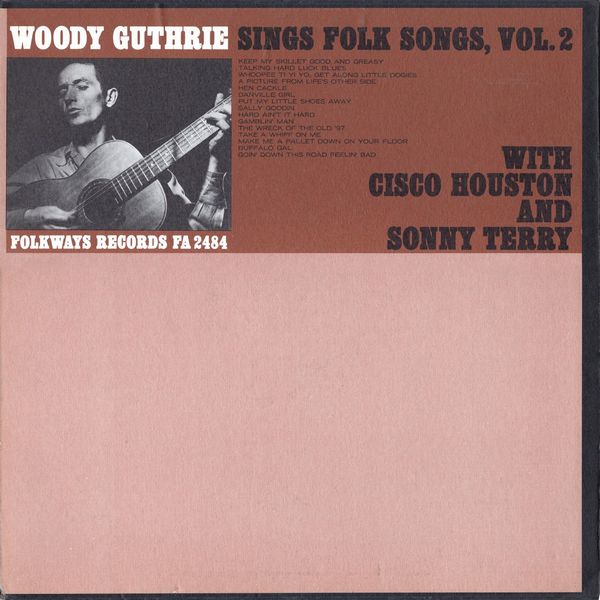 |
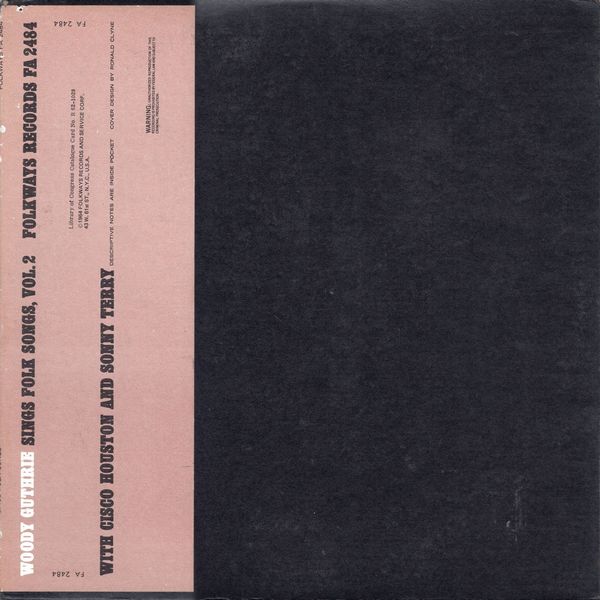
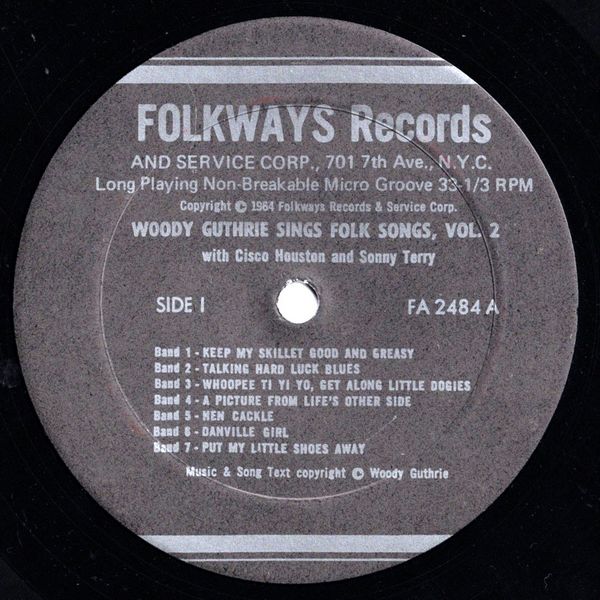
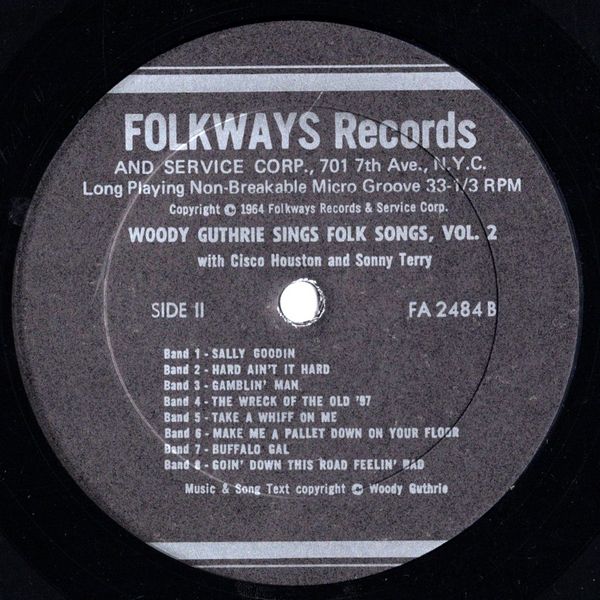
|
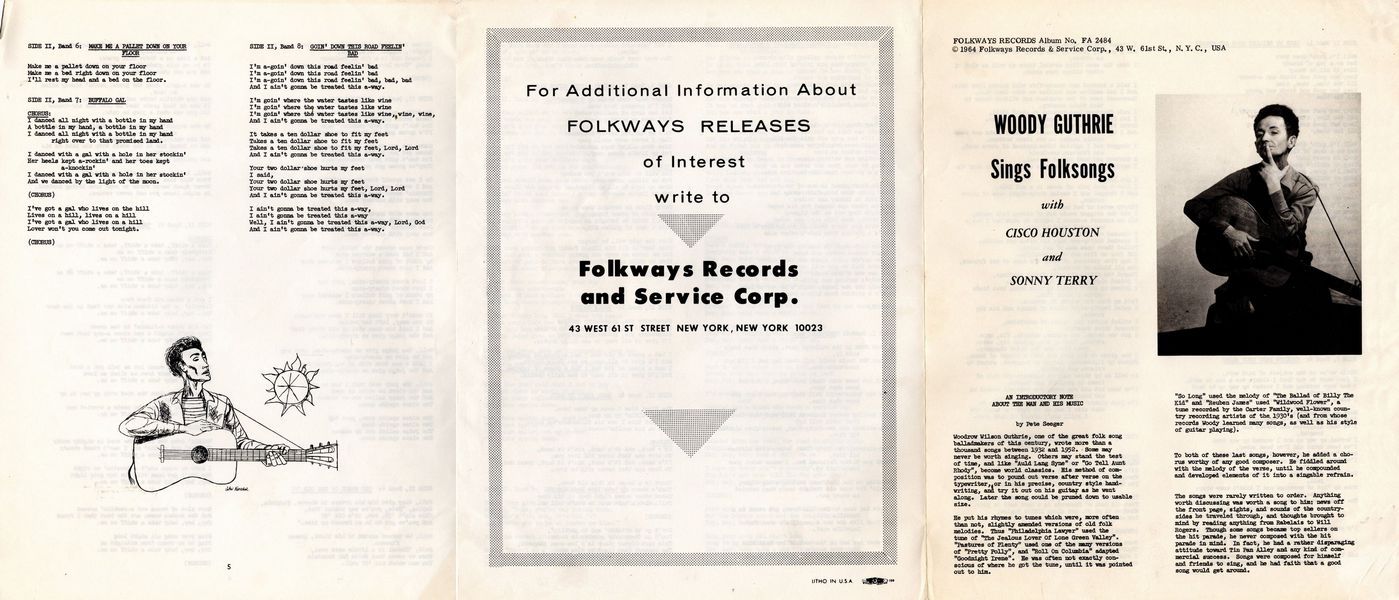
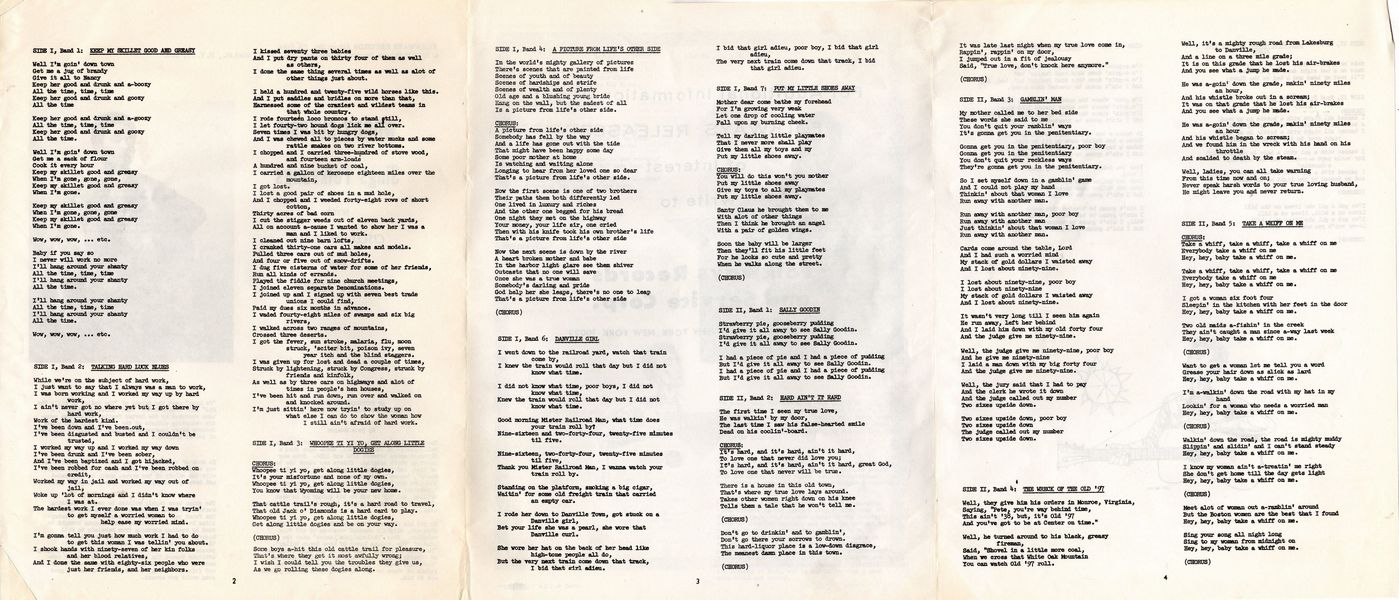
|
Sleeve Notes
An Introductory Note About the Man and His Music by Pete Seeger
Woodrow Wilson Guthrie, one of the great folk song balladmakers of this century, wrote more than a thousand songs between 1932 and 1952. Some may never be worth singing. Others may stand the test of time, and like "Auld Lang Syne" or "Go Tell Aunt Rhody", become world classics. His method of composition was to pound out verse after verse on the typewriter, or in his precise, country style handwriting, and try it out on his guitar os he went along. Later the song could be pruned down to usable size.
He put his rhymes to tunes which were, more often than not, slightly omended versions of old folk melodies. Thus "Philadelphia Lawyer" used the tune of "The Jealous lover Of Lone Green Valley". "Pastures of Plenty" used one of the many versions of "Pretty Polly", and "Roll On Columbia" adapted "Goodnight Irene". He was often not exactly conscious of where he got the tune, until it was pointed out to him.
"So Long" used the melody of 'The Ballad of Billy The Kid" and "Reuben James" used "Wildwood Flower", a tune recorded by the Carter Family, well-known country recording artists of the 1930's (and from whose records Woody learned many songs, as well as his style of guitar playing).
To both of these last songs, however, he added a chorus worthy of any good composer. He fiddled around with the melody of the verse, until he compounded and developed elements of it into a singable refrain.
The songs were rarely written to order. Anything worth discussing was worth a song to him: news off the front page, sights and sounds of the countrysides he traveled through, and thoughts brought to mind by reading anything from Rabelais to Will Rogers. Though some songs became top sellers on the hit parade, he never composed with the hit parade in mind. In fact, he had a rather disparaging attitude toward Tin Pan Alley and any kind of commercial success. Songs were composed for himself and friends to sing, and he had faith that a good song would get around in spite of the music industry.